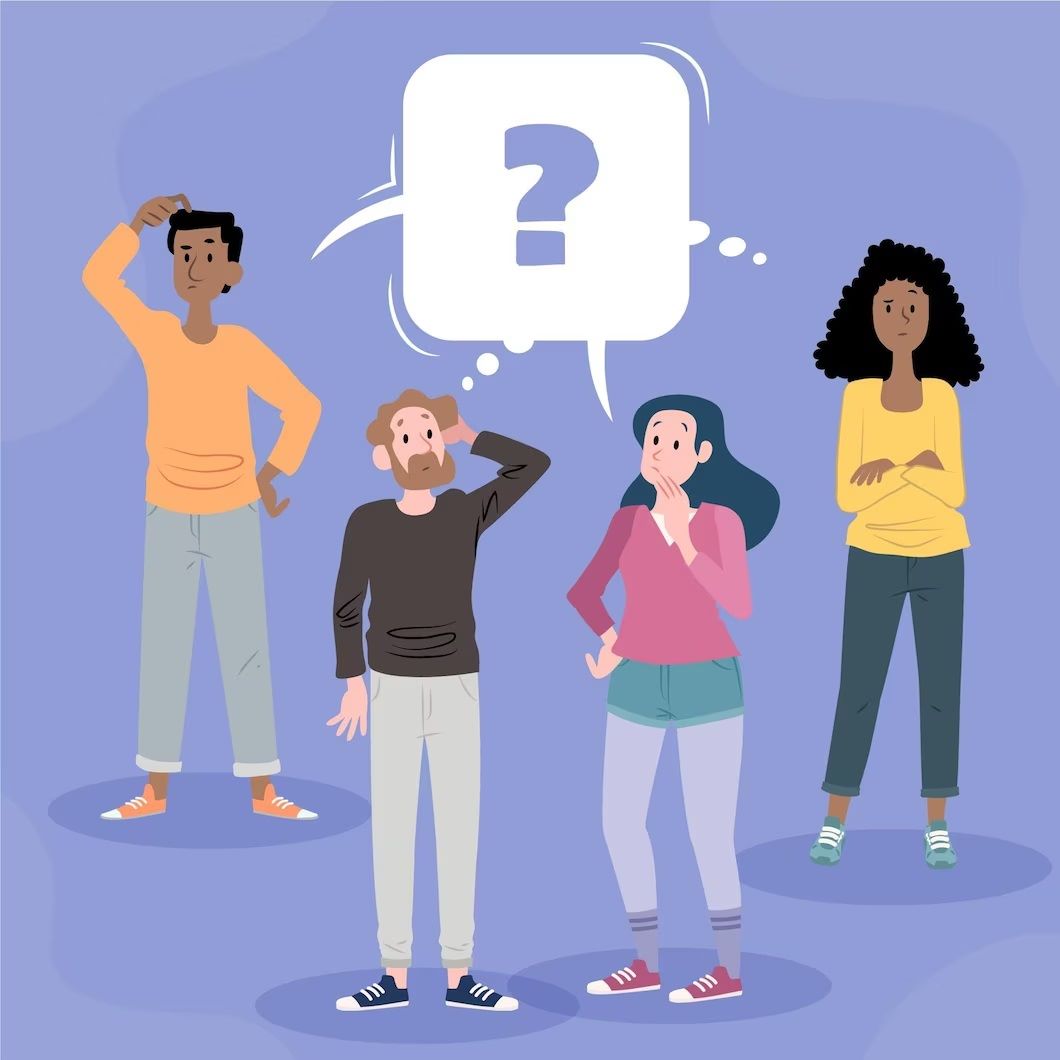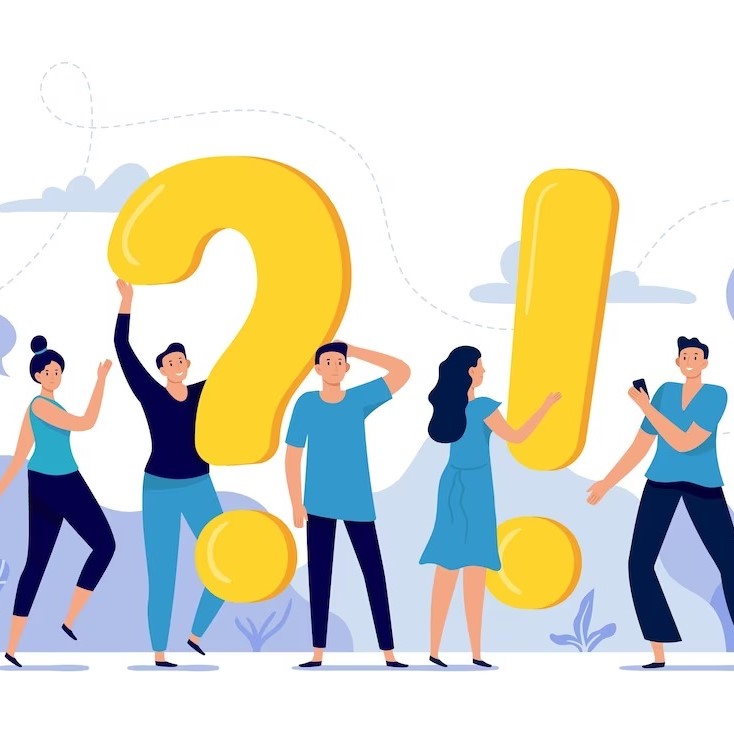Transforming Small Talk with Open-Ended Questions
Transforming Small Talk with Open-Ended Questions
Small talk is an essential part of social interactions. It allows people to establish connections by engaging in lighthearted conversations about everyday topics. However, small talk can sometimes feel superficial or disingenuous. People may avoid small talk because they feel uncomfortable or find it boring. One way to transform small talk into meaningful dialogue is by using open-ended questions. Open-ended questions are questions that require more than a simple yes or no answer. They encourage the speaker to share more information, thoughts, and feelings.
Open-ended questions can be used in various situations, such as job interviews, networking events, or casual conversations. They can help you build rapport, understand the other person's perspective, and uncover common interests. For instance, instead of asking someone where they work or what they do for a living, you can ask them what they enjoy about their job or how they decided to pursue their career. These types of questions are more engaging and show that you are interested in getting to know the person beyond basic information.
Transforming small talk can have positive effects on your social life and personal development. By using open-ended questions, you can enhance your communication skills, deepen your relationships, and learn new things about others and yourself. You may also discover that small talk can lead to significant connections and opportunities. Remember that small talk is not just a way to pass the time, but a valuable tool for building meaningful connections in both personal and professional settings.
Unlocking Meaningful Conversation
Meaningful conversations are a vital component of human interaction that allow us to establish connections and build relationships with those around us. These conversations can range from light-hearted to serious, but regardless of their subject matter, they offer a platform for individuals to exchange ideas, beliefs, and opinions. Through these conversations, we are able to communicate our needs and desires, express empathy, and learn about perspectives that differ from our own. With the rise of technology and social media, it has become increasingly important to prioritize meaningful conversations and ensure that we are not losing the vital human connections that come from face-to-face communication.
One of the keys to unlocking meaningful conversation is engaging in active listening. This means giving our full attention to the speaker, being present in the moment, and responding in a way that demonstrates our understanding and interest in what they are saying. An important aspect of active listening is asking open-ended questions that encourage the speaker to share more about their thoughts and experiences. By taking a curious and open approach, we can create an environment where meaningful conversations can thrive. As we engage in active listening, it is important to avoid interrupting, judging or otherwise dismissing the speaker's thoughts or feelings, as this can shut down the conversation and prevent it from reaching its full potential.
Another important factor in unlocking meaningful conversation is being willing to show vulnerability. This means being open and honest about our thoughts, feelings, and experiences. When we share our vulnerabilities, we open the door for others to do the same, and this can create a deeper sense of connection and trust. Vulnerability can be challenging, especially in situations where we may feel uncomfortable or exposed, but by taking a risk and sharing a piece of ourselves, we can build stronger relationships and create opportunities for growth. Ultimately, unlocking meaningful conversation requires us to be willing to step outside of our comfort zones, engage in active listening, and show vulnerability.
Advantages of Asking Open-Ended Questions
Open-ended questions are useful for a number of reasons. They allow you to gather more information from the interviewee or person you are speaking with. When you ask someone a closed-ended question, they can give you a succinct response that doesn't necessarily reveal much. Open-ended questions, on the other hand, can elicit a more detailed and complete response. This is especially useful if you're conducting research or trying to gather information about a situation, product, or person. Open-ended questions also allow for the interviewee to share their thoughts and ideas more freely, without feeling restricted by the format of the question.
Another advantage of asking open-ended questions is that they can help to build rapport between the interviewer and the interviewee. When you ask someone an open-ended question that allows them to share their thoughts and feelings, it shows that you are interested in what they have to say. This can help to establish a connection between the two people and make the interviewee feel more comfortable sharing information. In addition, open-ended questions can help to put the interviewee at ease by allowing them to speak in their own words, without the pressure of answering a specific question.
Open-ended questions are also useful for encouraging creativity and innovation. By asking questions that don't have a specific answer or that require more thought and reflection, you can inspire the interviewee to think outside the box. This can lead to new ideas and perspectives that may not have been considered before. Open-ended questions can also help to foster a sense of collaboration and teamwork, as they require the interviewee to work with the interviewer to come up with a thoughtful response.
When to Ask Open-Ended Questions
Asking open-ended questions is an effective way to gather detailed and insightful responses from your conversational partner. However, it is important to note that not all situations require the use of open-ended questions. It is best to use open-ended questions when you want to explore an idea in-depth and gain a deeper understanding of the person's thoughts and opinions. For example, if you are conducting a job interview, open-ended questions can help you get to know the candidate better and assess their suitability for the position.
It's important to consider the context and purpose of your conversation before deciding to ask open-ended questions. If the purpose of the conversation is to gather specific information quickly, closed-ended questions may be more appropriate. On the other hand, if you want to encourage discussion and generate new ideas, open-ended questions can be very effective. In general, it's best to use open-ended questions when you want to discover someone's perspective or opinion, gather detailed feedback, or explore a topic in more depth.
Another important consideration when using open-ended questions is the timing. Asking open-ended questions at the beginning of a conversation can help set the tone for a more relaxed and open exchange, while asking open-ended questions later in the conversation can help to delve deeper into a topic that has already been discussed. In general, it's best to use open-ended questions strategically throughout a conversation, rather than solely relying on them. By asking the right open-ended questions at the right time, you can create a more engaging and productive conversation that helps to build stronger connections and understanding between you and your conversational partner.
Gauging Your Conversation Partner's Level of Interest
Effective communication is key to building meaningful relationships, whether they be personal or professional. One important aspect of communication is gauging your conversation partner's level of interest. It can be frustrating and unproductive to talk to someone who is not invested in the conversation. On the other hand, if your conversation partner is engaged and interested, the conversation can be enriching and rewarding.
Nonverbal cues can be a helpful way to assess your conversation partner's interest level. For example, if they are making eye contact, nodding, and reacting appropriately to what you are saying, these are positive signs. On the other hand, if they are avoiding eye contact, checking their phone, or looking around the room, they may not be fully present in the conversation. Additionally, consider the tone of their voice - are they speaking with enthusiasm and energy, or are they sounding monotone and disinterested?
Another important factor to consider when gauging your conversation partner's interest is the topic of the conversation itself. If the topic is something that is personally interesting or relevant to them, they are more likely to be engaged. Similarly, if you can find common ground or make a personal connection, the conversation is more likely to be productive. Consider starting the conversation by asking questions or sharing something about yourself that can help establish common ground and build rapport.
Listening to Achieve Maximum Benefits
Listening is a vital skill that we all need to possess if we are to succeed in any area of our lives. Whether it is for personal or professional reasons, listening is a key component of effective communication. When we listen actively, we open ourselves up to a vast array of benefits that can help us excel in our careers and our relationships with others. By listening effectively, we can not only better understand others but also gain valuable insights into their needs, wants, and desires.
Listening can help improve our communication skills and make us more empathetic and understanding individuals. When we listen to others, we get a better sense of who they are and what they need, and this allows us to tailor our interactions with them in a way that makes them feel heard and valued. Effective listening can also help us to foster stronger relationships with those around us, whether it is in our personal or professional lives. By taking the time to listen and really hear what others are saying, we can build trust and respect and establish deeper connections with others.
In today's fast-paced and rapidly changing world, effective listening is more important than ever. With so many distractions vying for our attention, it can be difficult to give others our full attention and really listen to what they have to say. However, by making a conscious effort to listen actively and without distraction, we can achieve maximum benefits from our interactions with others. Whether it is in a work meeting, a job interview, or a conversation with a loved one, listening is the key to success and effective communication.
Knowing the Right Questions to Ask
Effective communication is an essential part of any successful interaction. Asking the right questions is crucial in order to achieve this. By asking the right questions, you gain a better understanding of your interlocutor's needs and expectations. This allows you to tailor your communication to meet their needs and satisfy their expectations.
Open-ended questions can be an effective way to encourage someone to open up and express themselves. Such questions encourage a more detailed response and offer a range of possible answers. Additionally, open-ended questions avoid the pitfalls of leading questions, which may steer the conversation in a particular direction. Instead, they encourage the person to elaborate and expound upon their thoughts in their own words.
Asking the right questions can also help establish trust and build rapport. When people feel that you are genuinely interested in their thoughts and opinions, they are more likely to open up to you. This is particularly important in professional relationships, where trust and rapport can help to facilitate cooperation and improve outcomes. By demonstrating an interest in others and asking the right questions, you can cultivate better relationships and become more effective in your personal and professional interactions.
Finding Common Ground
Finding common ground is an essential aspect of healthy communication and interpersonal relationships. In any situation where there are differing opinions, beliefs, or perspectives, finding a common point of agreement can help individuals work together and move forward. It requires active listening, empathy, and an open mind. It also implies a willingness to compromise and find mutually beneficial solutions. By focusing on common ground, individuals can reduce tension and conflict, build trust, and foster collaborative relationships.
However, finding common ground can be challenging in today's political and social climate, where polarization and extremism are becoming increasingly prevalent. People are more likely to become entrenched in their views and dismiss alternative perspectives. This is especially true in situations where important values and beliefs are at stake. In these cases, finding common ground may require a deeper level of vulnerability and discomfort. It may involve acknowledging and challenging one's own biases and assumptions, as well as being willing to respectfully engage with those with different experiences and perspectives.
Despite the challenges, finding common ground remains an important goal for individuals and communities. By recognizing our shared humanity and working towards mutual understanding, we can build stronger, more resilient relationships and communities. It requires a commitment to compassion, curiosity, and humility. It also requires recognizing that no one individual or group has a monopoly on the truth, and that different perspectives can be complementary rather than conflicting. Ultimately, finding common ground requires a willingness to see beyond our differences, and to work towards a shared vision of a better future.
Creating Empathy and Intimacy
Creating empathy and intimacy is important for building strong relationships. To create empathy, it is important to listen actively and try to see things from the other person's perspective. This can be done by asking open-ended questions and acknowledging the other person's feelings. It is also important to avoid judgement and criticism, as this can make the other person feel defensive.
To create intimacy, it is important to share personal experiences and thoughts. This can be done by opening up and allowing yourself to be vulnerable. It is also important to listen actively and show genuine interest in the other person. Physical touch, such as hugging or holding hands, can also create a sense of intimacy.
Creating empathy and intimacy requires practice and patience. It may feel uncomfortable at first, but allowing yourself to be vulnerable and showing empathy towards others can lead to deeper connections and more fulfilling relationships. By creating empathy and intimacy, we can build trust and understanding, and ultimately, feel more connected to those around us.
Creating Excitement and Engagement
Creating excitement and engagement is an essential part of any successful marketing strategy. One of the best ways to achieve these goals is by keeping your audience's attention and interest throughout the entire process. This can be done by utilizing a variety of marketing techniques, such as promoting exclusive deals and discounts, hosting giveaways and contests, and creating personalized and interactive experiences for your customers.
Another effective way to create excitement and engagement is by leveraging different marketing channels, such as social media, email marketing, and influencer marketing. These channels can help you reach a wider audience and build trust and credibility with your customers. By using these channels to showcase your brand's unique value proposition and highlight your products or services' benefits, you can create a sense of excitement and anticipation that encourages your audience to engage with your brand even more.
Finally, it's essential to understand your audience's needs and preferences and tailor your marketing efforts accordingly. This requires a deep understanding of your target audience, their behaviors, and their motivations. By gathering data and insights into your customer base, you can create personalized and relevant marketing campaigns that resonate with your audience on a deeper level. This will help you build long-term relationships with your customers and create a loyal following that will stay engaged with your brand for years to come.
Encouraging Self-Discovery
Self-discovery is a process of exploring your personality, beliefs, values, and goals. It's about understanding who you are and what matters to you. Encouraging self-discovery can help individuals build self-awareness and confidence, which are important for personal growth and development. There are numerous ways to encourage self-discovery, including seeking out new experiences, spending time alone, journaling, and mindfulness practices.
Seeking out new experiences can broaden our perspectives and challenge long-held beliefs. Whether it's trying a new sport, traveling to a different country, or attending a workshop or seminar, new experiences can help us expand our ways of thinking and promote self-awareness. Spending time alone can also be a powerful tool for self-discovery. When we spend time alone, we have the opportunity to reflect on our thoughts and emotions without distractions. Journaling is another way to encourage self-discovery. Writing about your experiences and emotions can help you understand your motivations and beliefs more clearly. Mindfulness practices, such as meditation or yoga, can help you become more present and attuned to your inner self.
Encouraging self-discovery can also promote greater satisfaction in life. When we understand our values, beliefs, and goals, we can make more informed decisions that align with our priorities. We can also build stronger relationships with others, as self-awareness allows us to communicate our needs and boundaries more effectively. Ultimately, engaging in self-discovery can lead to a deeper understanding of ourselves and the world around us, and contribute to a more fulfilling life.
Understanding Thought Processes
Understanding thought processes is critical in gaining insight into why we react and behave the way we do. Our thoughts influence our beliefs, attitudes, and behaviors, and they can also affect our mental and physical health. To comprehend our thought processes, we must examine our patterns of thinking and our cognitive biases, which are ingrained thinking habits that affect our perceptions and decision-making. We must learn to challenge our assumptions, evaluate evidence critically, and consider alternative perspectives to develop a comprehensive understanding of our thought processes.
Metacognition is a critical tool for understanding thought processes. Metacognitive thinking refers to thinking about one's thinking, awareness of one's knowledge and cognitive processes. This skill enables us to evaluate our thinking patterns, identify biases, and redirect our thinking towards more productive and objective reasoning methods. Self-awareness, mindfulness, and an openness to feedback are also essential components of metacognitive thinking. Through continuous practice, we can learn to recognize and modify our thinking habits to improve our cognitive abilities and decision-making.
The brain's neural networks are responsible for processing our thoughts and perceptions. These networks are influenced by various factors such as genetics, environmental factors, and life experiences. By understanding these factors' effects on our brain and thought processes, we can identify the root causes of our thinking habits and work to modify them. Recognizing and changing our neural pathways requires consistent effort and a willingness to challenge one's beliefs and assumptions. By doing so, we can enhance our understanding of the world and ourselves and develop more robust cognitive abilities.
Connecting with Others
For many people, connecting with others is an essential aspect of a fulfilling life. Whether it's through friendships, family relationships, romantic partnerships, or even casual acquaintances, the human need for connection is a fundamental part of our nature. One of the most important ways to foster these connections is through effective communication. Whether it's expressing our own thoughts and feelings or actively listening to others, communication skills can help ensure that our relationships remain strong and mutually beneficial.
Another vital aspect of connecting with others is learning to empathize with their experiences and perspectives. By putting ourselves in someone else's shoes, we can gain a deeper understanding of their thoughts and feelings, and build stronger connections as a result. Empathy can also help us approach difficult conversations or conflicts in a more productive way, as we can more easily understand the other person's point of view and work towards finding common ground.
Finally, it's important to remember that connecting with others is not just about building relationships for our own benefit. By reaching out to help other people in our community, we can build more meaningful connections and make a positive impact on society as a whole. Whether it's volunteering our time and skills, donating to charities, or simply lending a listening ear to someone in need, we can all find ways to connect with others in a meaningful way that benefits both ourselves and those around us.



